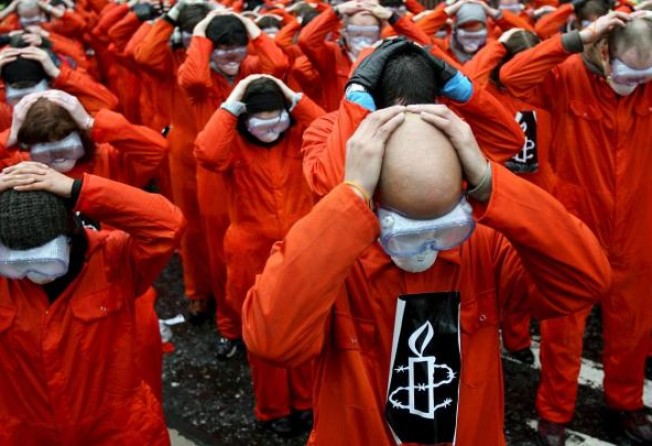Amnesty London staff strike over changes
Human rights watchdog's British operations hit by strikes as staff reject foreign postings and plans for major changes to the way it operates

The church hall in central London was standing-room only, the atmosphere charged. In a room draped in banners carrying the slogan "Workers' Rights are Human Rights", a union official summed up the mood: "We are here and we are pissed off."
These were not the disgruntled workers of a large corporation, but the staff of Amnesty International, their anger not focused on human rights abuse, but on their own management.
The battle between Amnesty staff and management has intensified in recent months following proposals to restructure the organisation. Strikes have been held at the UK branch and the international secretariat headquarters in London and picket lines have formed outside offices around the world.
Staff have given management a vote of no confidence and in response to more than 100 members expressing concern about changes taking place in the organisation an extraordinary general meeting has been called for next month.
The core of the dispute lies in the decision, led by the secretary general, Salil Shetty, to take the organisation "closer to the ground", opening 10 regional "hubs" in hotspots where human rights violations occur.
Some of Amnesty's 500 staff in London will be moved abroad They argue that the shift is under-planned, ill-judged and risks muddying the organisation's role. For them this is not a dispute over job cuts, but a battle for the organisation's soul.
According to Thomas Schultz-Jagow, Amnesty's senior director of campaigns and communications, the organisation has no choice but to adapt to a changing world.
"It is anachronistic to have an organisation with more than 500 people in London when we need to be where these abuses are happening, we need to be where the action is," he said. "If we do nothing, we will lose influence and become out of touch with those places where human rights violations are happening."
A majority of workers interviewed agreed, in principle, with the proposal. So how have relations become so bitter?
Schultz-Jagow said the proposals had been public for two years, but only now were cuts to staff being implemented and he suggested Unite, the union, was stalling the process.
"The role of Unite is to keep as many jobs in London as possible, and our job is to deliver a global strategy," he said. "We have huge sympathy for the people who are impacted but we also have a responsibility to take this forward."
Workers in the British section fear the security risks in opening new offices in often dangerous places have not been properly assessed, that human rights work and impartiality could be put at risk and that Amnesty UK could, in the words of one worker, be turned into a "cash cow" rather than a campaigning hub.
In the British section, 23 posts will be made redundant, cutting numbers from 171. The number set to go in the international secretariat has yet to be set.
Three directors have left in the past year. The most recent, Susan Lee, the Americas director, resigned because of "senior management's failure to honour its commitments to treat staff fairly and with respect".
The union then voted to strike, as management lacked "integrity, competence, transparency and accountability".
It is, according to one worker in the Amnesty UK office, a "stressful and unhappy" time. "In my most fearful moment I feel we are on a precipice, that we are unintentionally and thoughtlessly putting the future of the movement at risk," said the worker, who did not want to be named.